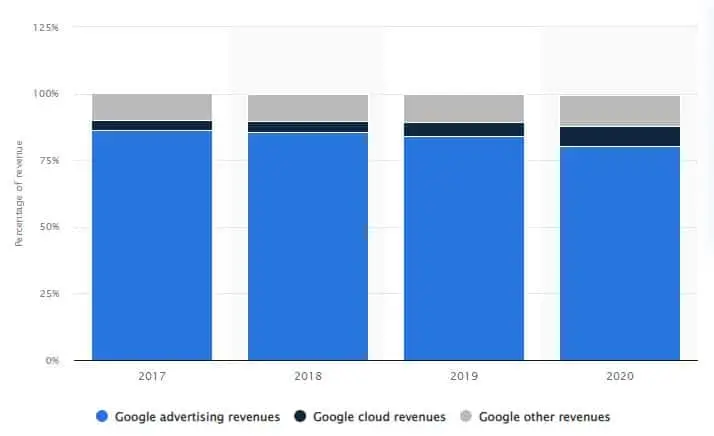
- January 19, 2021
- Admin
- Business, Digital Marketing, Entrepreneurship, Startups, Technology
Deprecated: Hook setted_transient is deprecated since version 6.8.0! Use set_transient instead. in /home2/nbmediai/leaddigital.in/wp-includes/functions.php on line 6121
A couple of decades ago Amazon founder Jeff Bezos was called Silly by editors at News-weekly Barron’s. They were of the opinion that only product companies such as Sony, would benefit from the power of the Internet, and not the kind of marketplaces that Amazon had built.
Listen and be open, but don’t let anybody tell you who you are. This was just one of the many stories telling us all the ways we were going to fail. Today, Amazon is one of the world’s most successful companies and has revolutionized two entirely different industries. pic.twitter.com/MgMsQHwqZl
— Jeff Bezos (@JeffBezos) October 11, 2021
The conservative outlook towards the strength and capability of the Internet didn’t stand the test of time.
The Internet eventually turned out to be far more inclusive, and most importantly, the OEMs who decided to not part ways with their traditional supply chain and sell online went to the verge of oblivion.
Interestingly all this happened within a period of 20 years, within the lifetimes of quite a few of us reading this today.
The disruption of the Internet was not just about the way we perceive the world around us. It created the kind of transactions that would have been impossible before.
Let’s crunch some data to understand this better – Google, a 24-year-old company is valued at $1 Trillion today, while companies such as GE, ABB, Honeywell, Siemens, some of them more than 100-year-old companies, are valued at around at 1/10th of this number.
What makes this comparison interesting is that 85% of Google’s revenue comes from Advertising offered on free products such as Gmail, Maps, YouTube, etc., while companies such as GE, ABB, Honeywell, Siemens have businesses operating in critical segments like Healthcare, Aviation, Conventional and Renewable Power, Transmission & distribution infra, Nuclear power plants, etc.
The fuel of the Internet is advertising, and irrespective of the disruptions in the last 20 years, the supply has steadily grown.
So, the question is, what makes the Internet so lucrative for advertisers?
1. Outreach
Google search gets about 63000 hits per second for its search, which is about 5.6 billion search queries a day. People depend on Google for everything. The searches range from navigation to recipes of their favorite dishes.
It is not just everywhere; it also covers every aspect of our lives.
It is the busiest marketplace in the world and keeps on growing as more people discover its power.
Keeping up with the traditional marketing standard that it is all about reaching out to people in the busiest of places, one comes to realize that there is no busier place than the internet on the planet today.
2. Personalization
With the current outreach of the internet, the one-size-fits-all concept of traditional marketing surely wouldn’t give results.
Search engines are used by everyone, a single display banner would cost too high and would be mostly irrelevant for most of the audience that come across the website.
Digital Marketing therefore customizes these banners based on the online persona of the person coming to the website.
This ensures that the ads are targeted, and the overall cost remains low as the same space is shared by multiple advertisers.
3. Call to Action & Feedbacks
One of the most critical problems with advertising is the ability to understand how your ads have influenced your audience.
Traditional marketing was always about blitzkrieg – Coca Cola had the money, so they could repeat the same ad multiple times during a world cup match telecast, but there was no means to ascertain that the ad was impacting their audience.
With ad personalisations on popular platforms such as Google, Facebook, Instagram, you can impact the audience in a more effective way at a fraction of cost by building CTAs in your campaign and analyzing the feedback in terms of views, opening rate, bounce rate, etc.
4. Return on Investments
Gone are the days of big businesses, occupying bigger shelf space in retail outlets, and owning those strategic billboards in your city.
If you are just starting out and still wish to build your brand, all you need to do is plan strategic campaigns for your target audience at a fraction of the cost, from the comforts of your homes/offices and you’d still be able to reach out to consumers that care about your product.
5. Benefit from real customer experiences
The Internet has steadily democratized the world of products, we can all purchase offerings that we need the most, and moreover benefit from real customer experiences and ratings rather than just hearsay.
How easy is it today to find a baker who sells gourmet bread in your neighborhood, and how difficult was it even a couple of years back?
The answer to this question tells you the efficacy of the digital world, and how swiftly it is spreading across segments that were traditionally considered to be non-digital in terms of their positioning in their client’s minds.
While all of us have all benefited from it as consumers, the companies that have the traction are ones that have decidedly hopped onto the internet bandwagon for their branding and product promotions, not the ones that have treated it with skepticism and remained aloof irrespective of the space it occupied in their own lives.
But all this comes with a learning curve, it is not as simple as going out there and posting about your business.
Though posting about business on search is an important step, to be truly effective, one needs to have a strategy.
How does a good Digital Marketer create the right strategy?
Digital marketing encompasses five basic attributes to make any of your campaigns effective
1. Content Generation
Branding is more than mere colours and fonts or the tone, it also means passing on a uniform message to the audience in terms of the products and services.
The awareness can come from a variety of sources, which includes social media posts, AdWords campaigns, or emails, the idea is to create a cohesive content strategy while comprehensively relating to the audience in a concerted way irrespective of the medium.
Content generation, therefore, is not just about building posts but creating an immersive experience with the right message to ensure that the customers are able to connect to the brand.
2. Search Engine Optimization
Search Engine Optimization (SEO) is the most over-exploited word in digital marketing – there are people ranging from SEO enthusiasts to SEO experts who claim to position your website on the top of internet search.
But the question is if everyone gets their SEO right, who gets to be on the top?
SEO is about evolution; it is dynamic in nature and changes as businesses evolve.
Website crawlers have also become smarter over time and do not exactly position you on the top unless your content really makes sense. Without a good page rank, digital marketing suffers irrespective of the strategy deployed.
3. Campaign Strategy
Businesses have multiple target groups based on their product offerings, and it is imperative that all these target groups are displayed content that is relevant to them – this can be based on geographical considerations, demographics, gender, livelihood, etc.
A good digital marketing agency would optimize the strategy for results and ensure that there is a balance between branding exercise and lead generation exercise, as both are key to the positioning of the company.
4. Platforms
Choosing the right platforms is as important as having the right digital persona. There are various ways in which companies pass on the message to the right set of audience, for example, Instagram is primarily an influencer market, LinkedIn on the other hand is mostly related to professional and business exchanges.
Mail campaigns are more suited to the B2B business segment for lead generation and for B2C for promotion. Every platform has its positives and the key to finding the right one for your products is to understand where your typical audience spends more time or is engaged better.
5. Analytics
Digital Marketing becomes a pointless exercise in case there is no analytics in the mix, from choosing the right keywords to understanding the behavior of the target audience.
Everything is based on a plethora of data that can be sourced using various analytical tools, and campaigns have become “smarter” over time, to position the brand ahead of the competition.
One of the questions that we come across, often, is that your product delivery is not through e-commerce, your products do not occupy the consumer space (B2C) and that is the reason that digital marketing is not meant for you.
Just like B2C space, B2B purchasing space is also dominated by Individuals who take decisions based on the dataset in front of them, and as their purchase habits change in their own lives, the perception of businesses evolves in terms of our business persona too.
How are business purchase decisions made in the contemporary world?
1. Stimulus
Imagine that as a lead in the sourcing team of your organization your company is looking out for CRM software but not the expensive ones.
You are not aware much of the technicalities of the software but have a basic perception of how it should work.
What is going to be the next step?
2. Zero Moment of Truth –
Internet Search
It’s highly likely that you would hop onto the internet and search for “Best CRM software,” “Affordable CRM Software,” just to get started.
The search builds your perception and you reach a conclusion that a few companies provide all the features and also fall into the price category that you are looking out for, this is Zero Moment of Truth for your purchase.
3. First Moment of Truth
Thereafter the decision-making moves into the first moment of truth where you start to analyze the products that you have shortlisted and start comparing the features.
This also is quite dependent on your online presence and dependent on digital marketing indirectly.
4. Second Moment of Truth
This refers to the final purchase decision to acquire the product from the preferred vendor.
If we go back into the process, we realize that there is no second moment of truth unless the product shows up at the Zero Moment and the features are amplified in the first moment, and that’s exactly where digital marketing for B2B space not only becomes essential but also vital for the growth of your product.
A good digital marketing agency would create campaigns that are meant for branding and showcasing the features of the product, follow it up with email campaigns, and thereafter re-target interested audiences to ease their purchase decisions.
How do you prepare to go digital?
Unfortunately, digital is not a one-way street, it is highly unlikely that a very good agency will be able to create the maximum impact unless your organization – especially sales and marketing teams, along with the CEO are aligned with the digital objectives.
More often than not, it is treated with an arm’s distance resulting in a waste of resources and more importantly opportunities.
Analyze your Existing Data
What does your existing data tell you?
What is the conventional persona of your buyers?
Who is the influencer?
It is the middle-aged working executive who is looking out for something for his office. Or is it a millennial who is going to influence her/his parents to purchase your product?
Identifying the right set of decision-makers and influencers eliminates the need for in-depth iterative marketing to identify the right target groups.
So, if you have that data ready with you, it helps to directly jump into the campaign.
Identify Goals
Everyone wants to increase sales; it is the bread and butter of the business.
But leads are not the only thing that you might want to look out for when it comes to digital strategy. It is important to understand metrics that eventually convert to leads.
This is very similar to doing hundreds of cold calls before a client approaches you with a big order.
In the digital world, these metrics are –
- The number of acquisitions on the website in a week/month
- The amount of time they spend on the website
- User flow behavior after they end up on a particular page
- The bounce rate on your landing pages
- If the user is motivated enough to fill the web form on your page and share their data with you.
- How are users behaving when it comes to new web pages, products?
Working on these metrics would not only create leads but also establish the sales funnel from where you can sustainably get your clients.
Create a Digital Persona
We are way past those times when people used to visit your offices to establish your genuineness.
Today, trust is established by your website.
If your website has comprehensive information about your business, appears soothing in terms of aesthetics, has a social media connect, and is organized properly there is a good chance that your prospects are going to trust you for your products.
So, it is imperative that the website should reflect the personality of your business.
Digital Responsiveness
If we book a car today and trust it to take us safely from one place to another, that is because we believe that the support of the car company is just a phone call or email away.
Digital responsiveness is one such quotient that can make or break your company for good. It is important to set up a desk that can take customer queries and support issues on priority.
So that brings us to the final question.
Which marketing agency will be right for you?
Here are some pointers to choose from:
1. Choose an agency that covers all aspects mentioned above and provide you with a plan that optimizes resource allocation
2. Look out for companies that have targeted similar persona to yours, and not just worked on a similar product
3. Understand the gestation period that the company foresees before they start capturing the leads. An experienced digital marketer would invariably talk about the gestation period and give you a reasonable time frame
4. Look into what kind of data the companies analyze and understand if the report format makes sense to you.
5. Lastly, ask for audit reports for your existing digital footprint vis-à-vis competition and try and analyze if the gaps have been sufficiently highlighted.
Not sure where to start?
We would like to introduce ourselves as Lead Digital. We offer end-to-end digital services that will blow your customer’s minds, generate hot leads and help your business scale with more ROI than before.
We hope you enjoyed reading this blog. Visit our website for more inside information on lead generation, digital marketing, and other related topics.
Let’s Get In Touch!
We would love to hear from you about your firm. Drop us a line, or give us a heads up if you’re interested in visiting us.
Categories
- Business (10)
- Contest (1)
- Digital Marketing (9)
- Digital Security (1)
- Entrepreneurship (7)
- Hiring (1)
- Lead Generation (3)
- Real Estate (1)
- Sports (1)
- Startups (7)
- Story (1)
- Technology (3)










